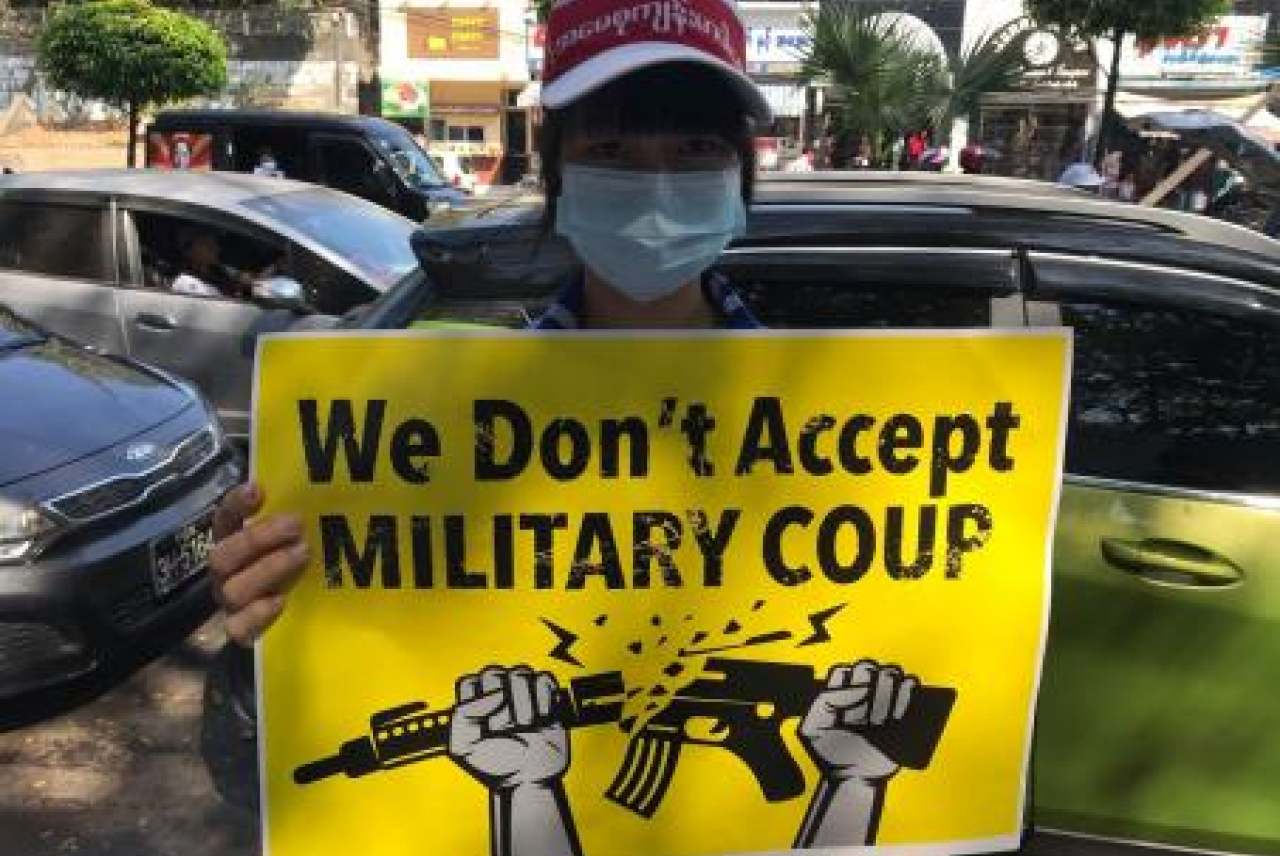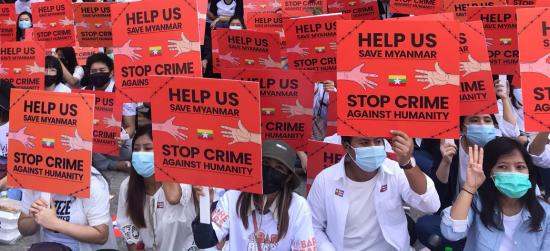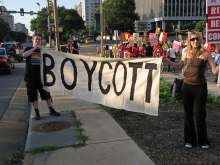What should companies be doing?
“Companies need to do a root and branch review of how they’re operating,” Mark says.
Yadanar from Justice For Myanmar agrees: “For companies in business with the military before the Feb 1 coup, we are continuing to call on them to end all business. For companies that were in business with civilian entities before the coup, we call on them to suspend all payments to the junta and place funds in a protected account until democracy is restored, with the military under civilian control.”
There is a growing domestic boycott of military companies within Myanmar itself, showing clear backing from within the country for cutting this avenue for income to the military. Stores and restaurants in the country have stopped stocking some products known to fund the junta.
In ending ties with the military, Justice For Myanmar emphasises, companies need to carefully assess the potential impacts including heightened risks to workers’ rights but also steps that may in fact strengthen the military, such as transferring assets or funds.
Those invested in companies doing business with the military must also “ensure they are not profiting from the bloodshed being committed in Myanmar,” Yadanar from Justice For Myanmar says.
Investors in complicit companies should apply pressure on that company to end military ties, Mark says, and if they refuse to change practices should sell the shares. “Give them an ultimatum,” he says. “You withdraw, or we withdraw.”
“You can’t improve how you do business with the military. Either you are doing it or not.”
Should companies boycott the country?
“No one is really calling for a complete and blanket boycott of the country. Companies need to be looked at on a case by case basis,” Mark for Burma Campaign UK says, to minimise the harm to those living in the country.
Telenor, a telecommunications company which is majority owned by the Norwegian state, is a good example, Mark says. Telenor is the leading mobile operator in the country, and recently paid its annual license fee to the government. But campaigners recognise that the company is treading a tricky line: “lots of people don’t want Telenor to be kicked out, otherwise the mobile service will be government controlled.” Instead, the company is speaking out about the regime, publishing orders it receives from the military to shut down the internet in the country.
When asked whether garment brands should withdraw from the country, Koen likewise says, “The population of Myanmar would be the real victim in the case of a mass withdrawal. But it is a real dilemma. We try to ensure to the best of our ability no links to the army, no indirect support, but there are areas where this becomes a bit fuzzy. Port authorities, customs etc. may be where some sort of funding will end up in the coffers of the authorities.”
“If brands do withdraw,” Koen says, “they should really take into consideration: What would happen to workers? Are they being paid their legal requirements? Are they getting severance pay? Are there options for factories to find another customer? It’s the responsibility of brands to really ensure they assess the implications of their decisions.”
Koen says that even where brands are pausing ties, “We still have the hope it will be a temporary suspension. We feel there is a commitment vis-a-vis the population - the garment workers - hundreds of thousands of people who have built their livelihoods in the garment industry.”
Some international brands that initially suspended orders from the country are now returning, such as Primark and H&M. “With our decision we want to avoid the imminent risk of our suppliers having to close their factories which would inevitably result in unemployment for tens of thousands of garment workers,” H&M stated.











